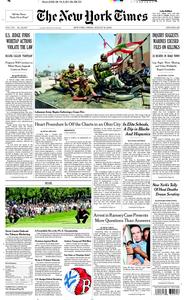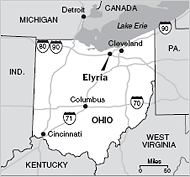
One example of flagrant cardiac procedure excess has made New York Times headlines:
Heart Procedure Is Off the Charts in an Ohio City
The number of angioplasties performed in Elyria is so high that Medicare is starting to ask questions.
(The full article can be accessed through the New York Times website at http://www.nytimes.com/2006/08/18/business/18stent.html?pagewanted=2&ei=5094&en=b81be5f43f98a99b&hp&ex=1155960000&partner=homepage)
Cardiologists in little Elyria, Ohio, about a 30-minute drive west of Cleveland, do more coronary angioplasties and insert more stents than any other location in the U.S.--four times more than the national average, three times more than the Cleveland average. They perform even more than the recently-indicted cardiologist in Louisiana, who performed twice the national average of procedures.

The Times article, part of a series about financial incentives in medical care, provides a responsible and incredibly balanced report on the situation in Elyria. I have to give them credit, because from the eyes of a colleague (myself), this looks like blatant and extreme profiteering: "cathing for dollars".
I find it outrageous that this group of cardiologists claims that they have some special insight into heart care that justifies this extraordinary reliance on heart procedures. There's bound to be variation in practice patterns, but this is so outside the norm that I believe criminal behavior will be exposed. In fact, I believe that even the "norm", or average, rate of procedures is also excessive.
This is symptomatic of the perverse equation in heart disease care. If there's money to be made in major heart procedures, who wants to bother with prevention? Programs like the Track Your Plaque program present real potential to stop coronary heart disease in its tracks for many, if not most, participants--but don't expect to hear about it from your cardiologist. Don't expect to hear about it from the increasingly hospital-employed primary care physician.
Hopefully, media exposure like that in the New York Times is just the beginning of a public re-analysis of not only what's wrong with medicine today, but recognition of the tremendous power in preventive strategies when everyone stops being so enamored with hospital-based procedures. CT-based heart scanning that ignites your heart disease prevention program is your way to dodge the mainstream obsession with procedures.